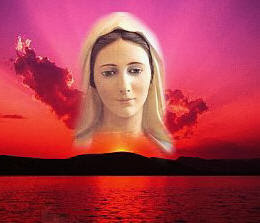Nearly four years after the motu proprio that made possible greater access to the Latin mass, John Allen has an interesting interview with Fr. Richard Hilgartner, Executive Director of the Secretariat for Divine Worship of the United States Conference of Catholic Bishops. A priest of the Baltimore archdiocese, Hilgartner studied liturgical theology at the prestigious Benedictine-run Pontifical Athenaeum of St. Anselm in Rome.
From NCR:
NCR: What impact has the motu proprio had in the United States?
Hilgartner: For many places it’s regularized what was previously deemed exceptional. Prior to the motu proprio, priests had to have special permission to celebrate the Tridentine form. Now priests don’t need special permission, because while the Tridentine form isn’t necessarily normative, it has its place in the larger context of the liturgical life of the church.
People usually ask for statistics, how many priests are celebrating the Tridentine form and how many people are attending it. Because of the motu proprio, however, there isn’t necessarily any reporting. Priests don’t need special permission, so we really don’t know when they’re doing it, especially when it’s a private celebration as a form of their own devotion.
What’s your anecdotal impression of how strong the demand has been?
I think there was an initial bump after the motu proprio, probably fueled by curiosity. Some people had rather limited access before, and suddenly there was the possibility of attending the extraordinary form more regularly. What seems to be happening in many dioceses is that there isn’t necessarily a Tridentine Mass in every parish that wants it, because the numbers are often fairly low, but there’s some kind of regional approach. In lots of dioceses there are one or two designated locations, and some bishops now celebrate the Tridentine form occasionally to be supportive of those efforts. Part of the reality, too, is that not many priests are well trained in celebrating the Tridentine form.
There’s been no popular repudiation of the new Mass?
I think that’s very safe to say. The motu proprio is serving a niche, a need felt by a small number of the faithful.
There’s talk of “opposition” from bishops. What’s your sense of how the American bishops have responded?
I can’t say that it’s been negative in any way. Some bishops have been more attuned to it than others, in part because there are some places where bishops might not see the demand. I’ve not seen anything, however, that could be perceived as overt or organized opposition. Some may be more passionate about it than others, but that’s natural.
Prior to the motu proprio, there were dire predictions about its impact. Almost four years into it, can we say that upheaval really hasn’t materialized?
I would agree. Initially there was some hesitation and concern, but we’ve not really seen histrionics in any large way. It’s not had a detrimental effect in terms of fracturing the unity of the church, so a lot of the hype has calmed down. Experience has proven that it’s not caused upheaval, and in most places it’s business as usual.
I’ve heard stories on both ends. I’ve talked to people who had never before experienced the older Mass, especially young people, who go out of curiosity and find beauty in it, something uplifting and moving. I’ve also talked to people who really thought we should go back to this, who then actually attended a Tridentine Mass and felt differently. Over the last forty years, people have grown accustomed to being able to comprehend and participate in what’s being celebrated. Participating by devotion, rather than actually engaging in the rites being celebrated, is a very different experience. Sometimes people who were nostalgic for the older Mass, therefore, end up with a different view once they actually take part in it.
Check out more. Interesting stuff.
About the Deacon
Deacon Greg Kandra is a Roman Catholic deacon serving the Diocese of Brooklyn, New York. A veteran broadcast journalist, Deacon Greg worked for 26 years as a writer and producer for CBS News in both New York and Washington. He now serves as the Executive Editor of ONE, the acclaimed magazine published by the Catholic Near East Welfare Association (CNEWA). Deacon Greg has been honored with every major award in broadcasting, including two George Foster Peabody Awards, two Emmy Awards, and four awards from the Writers Guild of America.

No comments:
Post a Comment
Please no anonymous comments. I require at least some way for people to address each other personally and courteously. Having some name or handle helps.
Note: Only a member of this blog may post a comment.